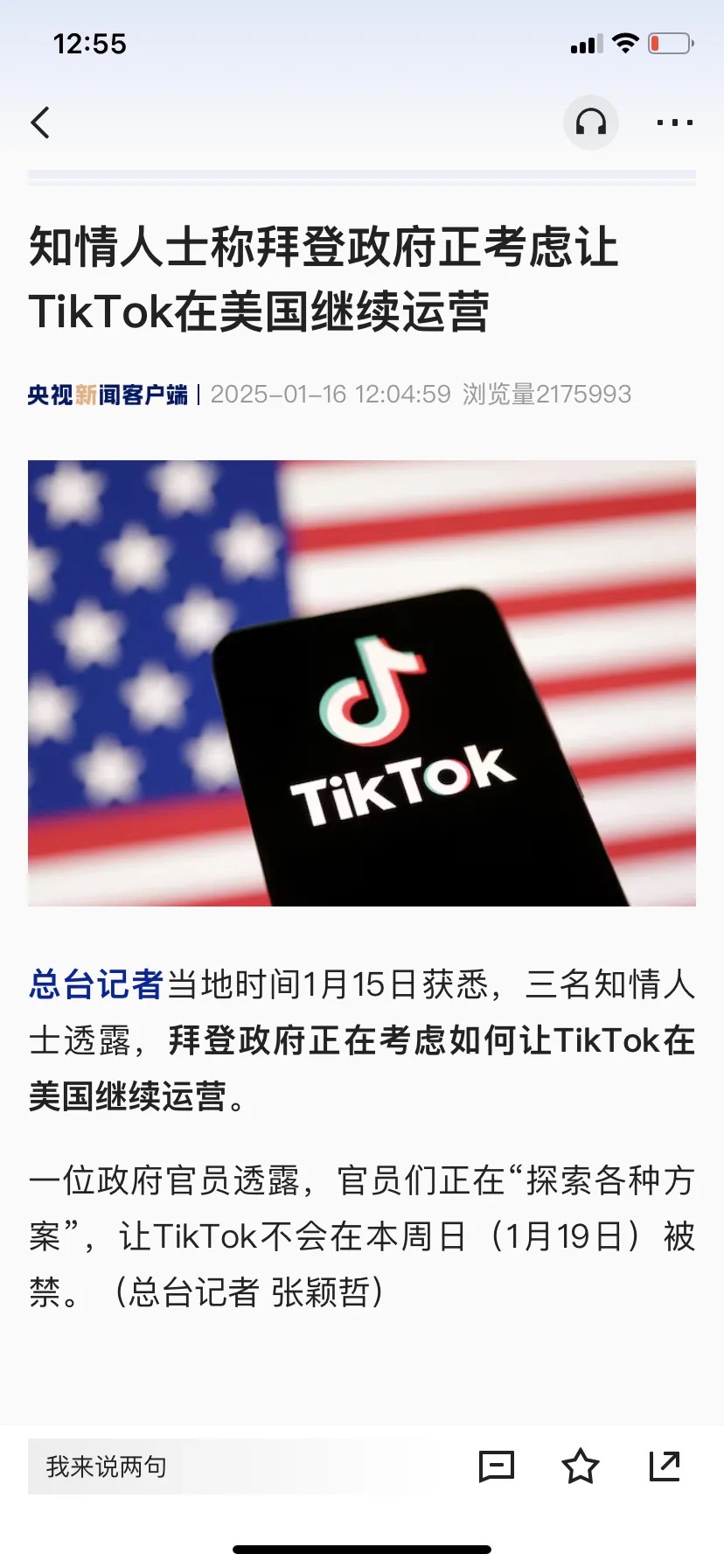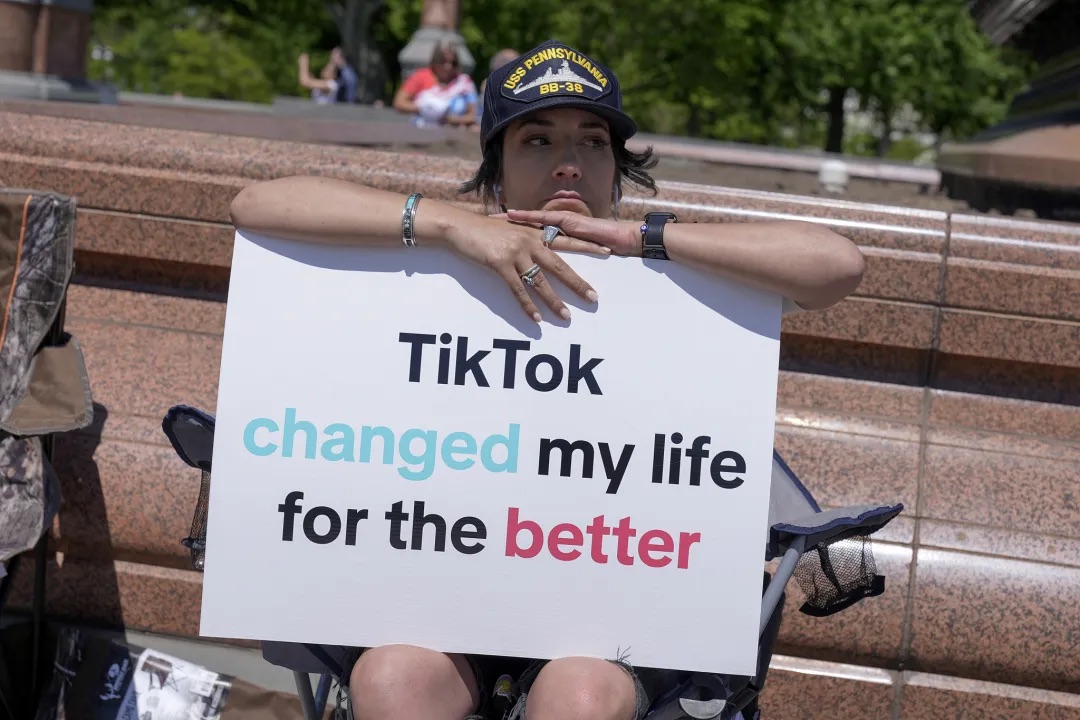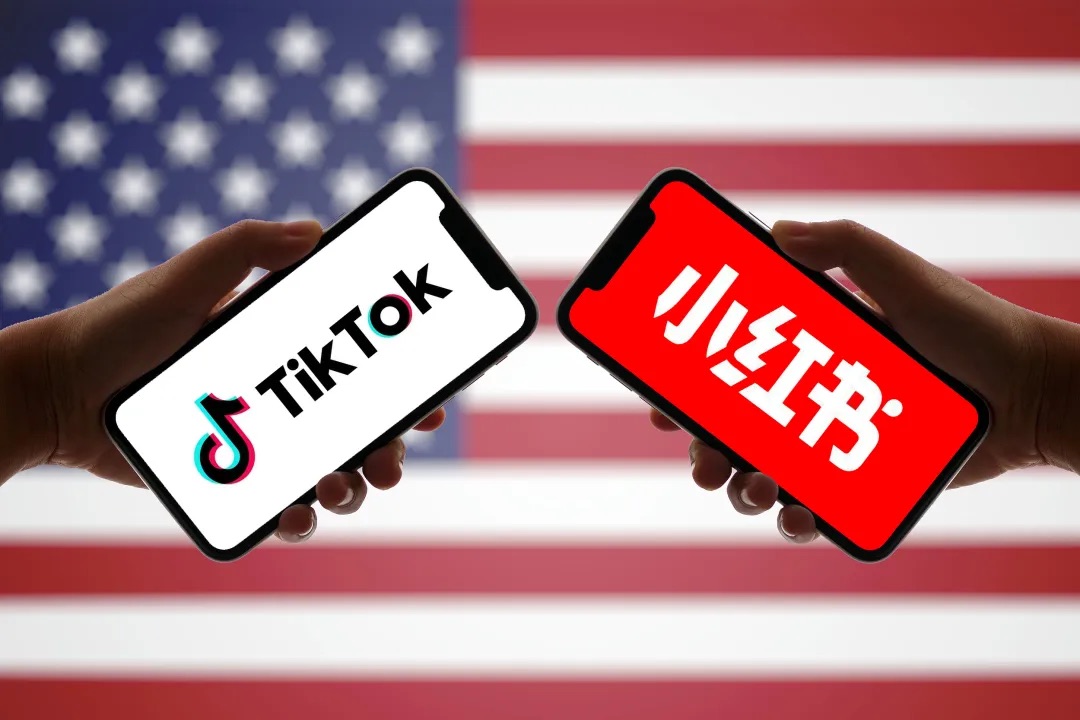TikTok, regardless of its survival, will bring significant changes to the global internet.
Written by: Lian Ran
Edited by: Zheng Xuan
Source: Geek Park
This may be the first time in human commercial history that a company with 170 million users and a valuation of hundreds of billions of dollars chooses not to be free, but rather to die.
On January 15, reports indicated that TikTok is prepared to shut down services in the U.S. immediately on Sunday unless the Supreme Court intervenes to stop the "ban if not sold" order.
According to the report, under this plan, users attempting to open TikTok will see a pop-up message prompting them to visit a website for details about the ban. Meanwhile, TikTok will also provide a data download option, allowing users to save their personal information.
If this move is implemented, it will mark a critical turning point for TikTok, transitioning from continuous resistance to having no way out, ultimately insisting on not backing down, "to live is to be a hero, to die is to be a ghostly hero."
However, it seems there may not be a lack of turning points. The latest news, according to CCTV News, is that informed sources have revealed that the Biden administration is considering how to allow TikTok to continue operating in the U.S., with "officials exploring options" to implement the law so that TikTok will not be banned this Sunday.

Image source: CCTV News
Since the U.S. government proposed a national security review in 2019, the pressure on TikTok has hardly ever ceased.
As the deadline for the "ban if not sold" approaches, TikTok prefers to take decisive action and directly shut down the app, forcing all users to face the impact of the ban. This choice will undoubtedly present unprecedented challenges for the world's largest short video platform.
With only 3 days left in the countdown, whether a turning point can emerge before the last moment, TikTok's persistence has already demonstrated strong resilience and a firm defense of its own value.
The story of TikTok is no longer just a simple narrative of how a tech company responds to political and commercial pressures; it has become a microcosm of the complex game between nations, companies, and users in the context of globalization.
Just as it was when it first emerged a few years ago, TikTok has transcended its positioning as a short video platform and has become an important piece in the game of global competition.
Now, standing at the crossroads of life and death, TikTok is clearly not simply driven by commercial interests but has chosen a more historically significant stance of "strength"—not fearing power and not easily compromising. This attitude may influence the far-reaching landscape of future technology industries and overseas interactions.
01 TikTok Has No Retreat
In the past two days, Xiaohongshu has been flooded with foreign users, with Chinese and foreign netizens joking and arguing on this app, but behind this seemingly prosperous internet "scene" is a critical moment in commercial history that is gradually approaching.
A company with 170 million users and a valuation of hundreds of billions of dollars in the U.S. is at an unprecedented critical juncture of survival, a situation that is hard to find a precedent for in commercial history.
In April last year, the U.S. Congress passed legislation: to ban or force the parent company ByteDance to sell TikTok. This bill was later signed into law by President Biden, marking that TikTok would face the most severe fate—TikTok would be banned in the U.S. on January 19 this year unless it severed ties with its Chinese parent company ByteDance.
But we know that this difficulty began in November 2019 when the U.S. government conducted a national security review of ByteDance's acquisition of Musical.ly, focusing on the handling and storage of user data.
In the following months, the U.S. Senate held multiple hearings to push legislation to ban TikTok. By August 2020, then-President Trump signed an executive order requiring TikTok to divest its U.S. operations within 90 days and took a series of restrictive measures. Although these bans did not take immediate effect, the Committee on Foreign Investment in the United States (CFIUS) subsequently launched a stricter review of TikTok.
In June 2021, although the Biden administration rescinded the Trump-era ban, the pressure and restrictions actually intensified.
TikTok has made various efforts to try to resolve the issue, including establishing a "Transparency and Accountability Center"; forming a content advisory committee; creating a dedicated U.S. data security company (USDS) responsible for managing U.S. user data; implementing a data isolation project called "Clover" and a data security project called "Texas," both of which have annual operating costs of about $1 billion; hiring executives with U.S. backgrounds; and reaching an agreement with Oracle, which would become TikTok's "trusted technology provider" in the U.S., allowing Oracle to conduct security checks on TikTok's source code in the U.S.
Past efforts and the subsequent series of actions TikTok took to prevent the proposal—including persuading users to complain to congressional representatives and running ads promoting TikTok's efforts in data security just days before the final vote—ended in failure as the U.S. Congress passed the bill.
But TikTok has not stopped its fight. In May last year, TikTok and its parent company ByteDance filed a lawsuit in U.S. federal court, asking the court to rule that the "Protecting Americans from Foreign Adversaries Act," aimed at banning TikTok, is unconstitutional and to overturn it.

Image source: Visual China
In September, the lawsuit filed by TikTok and its creators against the U.S. government was officially heard in the U.S. Court of Appeals for the District of Columbia. TikTok and ByteDance argued that the "qualified asset divestiture" required by the bill is impossible to achieve commercially, technically, and legally, and cannot be completed within the stipulated 270 days; even if the "conditional divestiture" required by the bill is operationally feasible, it fundamentally violates the U.S. Constitution's commitment to freedom of speech and personal liberty.
In December, the U.S. Court of Appeals rejected TikTok's appeal, upholding the order requiring ByteDance to divest TikTok's U.S. operations.
All along, TikTok has tried its best to resist, and now it has no retreat left; perhaps only by being "strong" to the end can there be a glimmer of hope for the future.
Meanwhile, reports indicate that President-elect Donald Trump is considering issuing an executive order to delay the enforcement of the ban for 60 to 90 days. Trump's term will begin the day after the ban takes effect, but reports did not specify how Trump intends to implement this measure legally.
Additionally, last week, U.S. Senator Edward Markey from Massachusetts delivered a speech in the Senate and live-streamed on TikTok. In his speech, he mentioned plans to propose legislation to extend the deadline for the "ban if not sold" order by another 270 days, stating that the ban's enforcement would severely impact American society and cultural ecology, causing millions of Americans to lose their channels of expression and significantly affecting those who rely on the app to establish social connections and maintain their livelihoods.
But the deadline is imminent, with only 3 days left. Will there be any changes?
02 The Internet World Between China and the U.S., Opening a Window?
Whether to directly shut down, continue operations, or wait for a reprieve until Trump takes office for further judgment, TikTok's fate in the U.S. will be answered in 3 days.
However, from today's perspective, especially seeing the "drama" happening on Xiaohongshu, we can begin to think about where the internet world between China and the U.S. will go after TikTok's fate is settled.
First, it is certain that after TikTok is banned, Douyin will open international registration, and the influx of U.S. TikTok users seeking refuge domestically is likely to be nonsense.

Starting January 15, a large number of user videos on Douyin have shown IP locations from the U.S., U.K., Russia, Thailand, and other places, and the phone number registration page also displays international dialing codes from various countries.
However, this does not mean that Douyin has opened overseas IP registration. ByteDance has not directly responded to whether Douyin has opened registration for overseas users, while Douyin Group's Li Liang responded on Weibo, stating, "Having an overseas IP does not mean being an overseas registered user. Additionally, we have found that many people are trying to take advantage of this situation, moving videos and impersonating foreign users, especially some black market groups trying to gain followers and maintain accounts. These accounts are somewhat difficult to identify, and we are actively managing this situation, having already dealt with over 10,000 accounts impersonating foreign users."
In other words, many foreign users currently appearing on Douyin recording videos may be overseas movers or domestic black market teams using "fake foreigners" to attract traffic.
Even without discussing the domestic and international regulatory issues that may arise from foreign users registering on domestic apps, whether foreign creators and users can integrate into platforms like Douyin and Xiaohongshu is a significant challenge.
Clearly, Xiaohongshu is not well-prepared for internationalization. One example is that today, the Xiaohongshu app lacks essential translation features found in international apps like X, Instagram, and TikTok. With a large influx of overseas users, cross-national communication in the comment section still relies on Chinese users speaking English or using translation tools. Of course, this is not a complex technical issue; given today's AI infrastructure development level, high-quality multilingual translation can be easily achieved. If needed, Xiaohongshu's product team could quickly implement functional updates.
The deeper challenge lies in how to effectively manage international user operations on these platforms primarily focused on domestic communities.
Today, overseas users coming to Xiaohongshu for "refuge" are mostly motivated by their aversion to the TikTok ban, and their pleasant interactions with domestic users are largely due to the novelty of encountering real Chinese users for the first time. The Xiaohongshu community is characterized by "sharing real life," which may sometimes be more refined than the real world, but for over 95% of Chinese and American users who have never been to each other's countries, this kind of exchange is filled with novelty.
Whether sharing each other's food, scenery, and pets, helping with English homework, or playing some international jokes like "you send me F22 cockpit photos, and I'll ask you for sixth-generation fighter design drawings," this kind of genuine interaction is undoubtedly fresh for both Chinese and American users.
However, for the long-term operation of a community, novelty alone is not enough to "preserve freshness." Just as China opened visa-free stays for citizens of certain countries, leading many foreigners to travel to China, Xiaohongshu has now also become a cyber check-in place for some Americans.
Once the novelty wears off, the key is to enable overseas users to "live" here, using and consuming content daily; to encourage overseas creators to continue posting and earning commercial benefits. Xiaohongshu still needs to operate users by IP region like all overseas products have done and further build an overseas operation and commercialization system, which is no different from what ByteDance did in the past, and it will also have to compete with ByteDance's Lemon8 and similar products like Instagram.
However, even if it cannot become a substitute for overseas similar products, it may still open a window for overseas people to understand the real China in specific scenarios, and Xiaohongshu could seize this opportunity to explore new possibilities.
In fact, just as past international students used Xiaohongshu as a guide for studying abroad, the exchanges between Xiaohongshu's domestic and overseas users can still bring practical exchanges beyond the excitement and novelty. For example, Chinese users provide local attractions and food guides for foreigners hoping to travel to China, and authentic Westerners explain English grammar to Chinese students. This "real and useful" aspect for users has always been the cornerstone of Xiaohongshu's community, and combined with this opportunity, it may also become the beginning of Xiaohongshu's internationalization breakthrough.
Regardless, the far-reaching impact of TikTok has long surpassed the simple product category. After January 19, all answers will gradually be revealed, and the many challenges and opportunities arising from this will undoubtedly become important topics for our long-term consideration in the future.
免责声明:本文章仅代表作者个人观点,不代表本平台的立场和观点。本文章仅供信息分享,不构成对任何人的任何投资建议。用户与作者之间的任何争议,与本平台无关。如网页中刊载的文章或图片涉及侵权,请提供相关的权利证明和身份证明发送邮件到support@aicoin.com,本平台相关工作人员将会进行核查。



